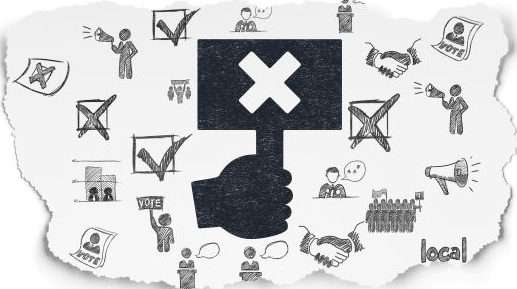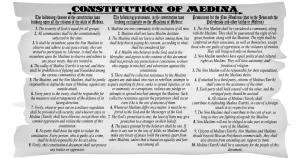The rule of law is a fundamental principle of modern legal systems, and it is an essential component of a democratic society. It is a concept that has been debated and discussed by philosophers, jurists, and legal scholars for centuries. The rule of law is a complex and multifaceted concept that can be understood in different ways, depending on one’s perspective and the context in which it is applied. In this article, we will explore the meaning of the rule of law, its key principles, its role in a democratic society, and the relationship between the rule of law and democracy. We will also examine some of the theoretical perspectives on the rule of law, including those of Montesquieu, Dicey, and Raz.
What is the Rule of Law?
The rule of law is a fundamental principle that underpins democratic society. It refers to the idea that everyone is subject to the law, including the government, and that no one is above the law. The rule of law also requires that the law is clear, predictable, and accessible to all and that it is enforced fairly and impartially by an independent judiciary.
The rule of law is a principle that emphasizes the importance of the law as a means of regulating and governing society. It is a concept that can be traced back to ancient civilizations, such as Greece and Rome, where the idea of the rule of law was used to limit the power of rulers and ensure that the law applied equally to all citizens. In modern times, the rule of law has been adopted as a fundamental principle of legal systems around the world, and it is seen as a cornerstone of a democratic society.

The rule of law can be understood as a principle that requires that all individuals and institutions are subject to and accountable to the law. This means that the law applies equally to everyone, regardless of their status, wealth, or power.
One of the most influential definitions of the rule of law comes from the English philosopher A.V. Dicey, who wrote in 1885 that the rule of law means “the absolute supremacy or predominance of regular law as opposed to the influence of arbitrary power, and excludes the existence of arbitrariness, of prerogative, or even of wide discretionary authority on the part of the government.” In other words, the rule of law requires that laws are clear and consistently enforced and that government officials cannot act arbitrarily or use their discretion to violate individual rights.
What is the State? What are its constituent elements?
Similarly, the American philosopher Ronald Dworkin wrote in his book “Law’s Empire” that the rule of law means “the government must follow the law, as the law is the best and most authoritative guide to what the government should do.” This means that the government must act following the law and that the law is the best guide to determining what the government should and should not do.
The importance of the rule of law is further underscored by the United Nations, which defines it as “a principle of governance in which all persons, institutions, and entities, public and private, including the State itself, are accountable to laws that are publicly promulgated, equally enforced and independently adjudicated, and which are consistent with international human rights norms and standards.”
Application of Rule of Law in Bangladesh
Unfortunately, many countries, including Bangladesh, struggle with upholding the rule of law. In Bangladesh, there are frequent reports of human rights abuses and violations, and the government often suppresses political opposition and criticism. The judiciary is also frequently criticized for lacking independence and being subject to political influence.
Sarcastically, one can say that in Bangladesh, the government uses laws as a tool to maintain its power rather than as a means of ensuring justice and protecting individual rights. The government often uses its power to silence opposition and critics, and the judiciary is often unable to act independently.
One such incident that gained international attention was the case of Justice Surya Kumar Sinha, former Chief Justice of Bangladesh. Justice Sinha was forced to resign and fled to the United States in 2017, citing threats to his life and allegations of government pressure to deliver politically motivated judgments. In his book, “A Broken Dream: Rule of Law, Human Rights, and Democracy,” Justice Sinha expressed his concerns about the state of the rule of law in Bangladesh, stating that “the judiciary is not free, fair, impartial, and independent.”

Suvra Kanti Das]
Another incident that sparked controversy in Bangladesh was the case of photographer Shahidul Alam, who was arrested and denied bail for more than 100 days in 2018 for speaking out against the government’s crackdown on student protests. Alam’s case highlighted the growing trend of government suppression of free speech and expression, which is a fundamental tenet of the rule of law. These incidents, along with many others, illustrate the challenges faced by the legal system in upholding the principles of the rule of law in Bangladesh.
However, the rule of law is a foundational and fundamental principle of democratic societies, and its importance cannot be overstated. It requires that laws are clear, predictable, and consistently enforced, and that government officials cannot act arbitrarily or use their discretion to violate individual rights.
The Key Principles of the Rule of Law
The rule of law is comprised of several key principles, each of which is essential to ensuring that the law is applied fairly and equally to all individuals and institutions. These principles include:
Equality before the Law
The principle of equality before the law requires that everyone is subject to the same laws and regulations, regardless of their status or position in society. This means that the law should not discriminate against anyone based on race, gender, religion, or any other personal characteristic.
Montesquieu, a French philosopher, was one of the first to develop a theory of the rule of law. He believed that the rule of law was essential to limiting the power of the monarch and preventing abuses of power. He argued that the rule of law required that the legislative, executive, and judicial branches of government be separate and independent so that no one branch could exercise too much power. This theory became known as the theory of separation of powers.
For example, in India, the principle of equality before the law is enshrined in the Constitution, which guarantees that all citizens are equal before the law and are entitled to equal protection under the law.
Predictability and Certainty of the Law
The principle of predictability and certainty of the law requires that the law is clear, predictable, and accessible to all. This means that individuals should be able to know in advance what the law requires of them and what the consequences of their actions will be.
Dicey, an English jurist, developed a theory of the rule of law that emphasized the importance of the common law tradition. He argued that the rule of law required that the law be based on established legal principles that were developed over time through judicial decisions. This theory became known as the theory of the rule of law in common law jurisdictions.
For example, in the United States, the principle of predictability and certainty of the law is supported by the doctrine of stare decisis, which requires that courts follow precedents and apply established legal principles to similar cases.
Transparency and Accountability
The principle of transparency and accountability requires that the law is enforced fairly and impartially by an independent judiciary. This means that the legal process should be open to the public and that those who enforce the law should be held accountable for their actions.
Raz, an Israeli philosopher, developed a theory of the rule of law that emphasized the importance of the rule of law as a value in itself, rather than simply as a means to other ends. He argued that the rule of law required that the law be accessible to everyone and that those who enforce the law should be subject to the law themselves.
For example, in the United Kingdom, the principle of transparency and accountability is supported by the system of judicial review, which allows individuals to challenge the actions of government officials and agencies in court.
Fairness and Impartiality of the Law
Fairness and impartiality require that the law be applied equally to all individuals without discrimination and that the judiciary is free from bias and influence.
In his theory of the rule of law, Raz emphasized the importance of fairness and impartiality. He argued that the law should not be used to favor certain individuals or groups, but should be applied equally to everyone. Similarly, the philosopher Lon Fuller stressed the importance of procedural fairness, which requires that legal procedures are followed and that individuals are given a fair hearing in court.
The principle of fairness and impartiality is particularly important in democratic societies, where the rule of law serves to protect individual rights and promote social justice. By ensuring that the law is applied fairly and impartially, the rule of law helps to create a society where all individuals are treated with dignity and respect, regardless of their race, ethnicity, gender, or social status.
Fundamental principles of state policy, characteristics, and its enforceability
Furthermore, the principle of fairness and impartiality is essential for ensuring public trust in the legal system. When individuals feel that the law is being applied unfairly or that the judiciary is biased, they may lose confidence in the legal system, leading to social unrest and instability.
Therefore, fairness and impartiality are integral principles of the rule of law that must be upheld to ensure that legal systems are just and effective in promoting social order and individual rights.
The Role of the Rule of Law in a Democratic Society
The rule of law is a key component of democratic societies, as it ensures that the law is applied equally to all citizens and that those who enforce the law are held accountable for their actions. In a democratic society, the rule of law serves several important functions.
The rule of law plays a vital role in democratic societies, ensuring that the legal system functions to promote individual rights, social justice, and equality. In addition, the rule of law helps to limit the powers of government and prevent the abuse of power, encouraging economic development and investment, and fostering international cooperation and collaboration.
Ensuring the Protection of Individual Rights and Freedoms
One of the primary functions of the rule of law in a democratic society is to ensure that individual rights and freedoms are protected. This includes fundamental rights such as freedom of speech, religion, and assembly, as well as the right to a fair trial and due process of law. By upholding these rights, the rule of law serves to protect individuals from arbitrary government action and promote personal autonomy and self-determination.
Promoting Social Justice and Equality
The rule of law is also instrumental in promoting social justice and equality. By providing a framework of laws and regulations that apply equally to all individuals, the rule of law helps to ensure that everyone is treated fairly and with equal dignity and respect. This includes protections against discrimination based on race, ethnicity, gender, or other characteristics, as well as measures to address social and economic inequality.
Limiting the Powers of Government and Preventing Abuse of Power
In a democratic society, the rule of law helps to limit the powers of government and prevent the abuse of power. This includes measures such as the separation of powers, the independence of the judiciary, and constitutional safeguards against government overreach. By establishing legal limits on government authority, the rule of law serves to protect individual rights and promote accountable and transparent governance.
Encouraging Economic Development and Investment
The rule of law also plays a key role in encouraging economic development and investment. By providing a predictable and stable legal framework, the rule of law helps to create a favorable environment for business growth and investment. This includes protections for property rights, contract enforcement, and intellectual property, as well as measures to combat corruption and promote market competition.
Fostering International Cooperation and Collaboration
Finally, the rule of law serves as a critical foundation for international cooperation and collaboration. By providing a shared framework of legal norms and principles, the rule of law helps to facilitate trade, diplomacy, and human rights protections across borders. This includes international treaties and agreements, as well as mechanisms for dispute resolution and the promotion of shared values and standards.
Overall, the rule of law is a fundamental principle of democratic societies that serve to promote individual rights, social justice, and equality. By limiting government power, encouraging economic development, and fostering international cooperation, the rule of law helps to create a just and stable world order that benefits everyone. As the philosopher, John Rawls famously observed, “The rule of law…is the first virtue of social institutions, as truth is of systems of thought.”
The Relationship between the Rule of Law and Democracy
The rule of law and democracy are closely interconnected, as both are essential components of modern societies. Democracy requires that the people have a say in how they are governed, and the rule of law ensures that their rights are protected and that those who govern are accountable to the law.
According to the philosopher John Rawls, the rule of law is a necessary condition for democratic societies, as it ensures that individuals are treated fairly and that their rights are protected. He argued that the rule of law was essential to creating a just society, as it provided a framework for resolving disputes and conflicts through legal means.
Democracy is a system of government that relies on the rule of law to function effectively. Conversely, the rule of law relies on democracy to ensure that it is upheld in practice. In this section, we will explore the importance of the rule of law in maintaining democratic values and principles, the rule of law as a check against authoritarianism and totalitarianism, and the role of the legal system and the judiciary in upholding the rule of law.
The Importance of the Rule of Law in Maintaining Democratic Values and Principles
The rule of law is crucial in maintaining democratic values and principles, such as individual rights, equality, and accountability. Democratic societies require laws that are predictable, transparent, and consistently enforced to uphold these values. The rule of law provides a framework for creating and implementing such laws. Without the rule of law, democratic societies can become chaotic and unstable, leaving individuals vulnerable to arbitrary government action.
The Rule of Law as a Check against Authoritarianism and Totalitarianism
The rule of law also serves as a critical check against authoritarianism and totalitarianism. These forms of government rely on the concentration of power in the hands of a small group of individuals, often at the expense of individual rights and freedoms. The rule of law provides a legal framework for limiting the power of government and ensuring that it is exercised following established procedures and safeguards. By upholding the rule of law, democratic societies can prevent the rise of authoritarian regimes and protect the rights of individuals against abuses of power.
Society’s Resistance to Wisdom and Intelligence: A Paradox
The Role of the Legal System and the Judiciary in Upholding the Rule of Law
The legal system and the judiciary play a vital role in upholding the rule of law in democratic societies. The legal system is responsible for creating and enforcing laws that reflect democratic values and principles. The judiciary, in turn, is responsible for interpreting and applying those laws fairly and impartially. By upholding the rule of law in this way, the legal system and the judiciary ensure that individuals are protected against arbitrary government action and that the democratic process is respected. As the philosopher, Hannah Arendt famously observed, “The right to have rights is indeed the most fundamental of all rights, for it secures the rights of all other rights.”
Conclusion
The importance of the rule of law in a democratic society cannot be overstated. Without the rule of law, societies can become unstable, leaving individuals vulnerable to arbitrary government action. Upholding the rule of law is essential for maintaining democratic values and principles. It creates a legal framework for creating and implementing laws that protect individual rights and freedoms, promotes social justice and equality, and limit the power of government.
The implications of the rule of law for legal practice and education are significant. Legal professionals play a crucial role in upholding the rule of law and ensuring that democratic societies function effectively. Legal education must emphasize the importance of the rule of law and train future lawyers to uphold democratic values and principles. Legal practitioners must also be committed to upholding the rule of law and ensuring that the legal system is fair, impartial, and consistently enforced.
While there may be challenges and setbacks, it is only by working together and holding ourselves and our governments accountable that we can ensure that the rule of law remains a pillar of justice and democracy. As legal professionals, we must uphold the rule of law and advocate for its proper implementation.















